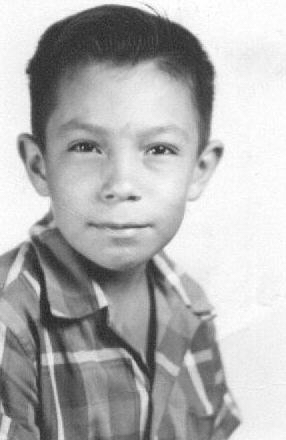ANNOTATED BIBLIOGRAPHY
Arnoldo De León and Robert A. Calvert.
Civil Rights Movement. The Handbook of Texas Online. http://www.tsha.utexas.edu/handbook/online/articles/view/CC/pkcfl.html.
Civil rights campaigns in Texas are generally associated with the state's two most prominent ethnic minorities: African Americans and Mexican Americans.
Mexican Americans have made efforts to bring about improved political circumstances since the Anglo-American domination of Texas began in 1836. African Texans
have fought for civil rights since their emancipation from slavery in 1865.
Arnoldo De León.
Chicano. The Handbook of Texas Online. http://www.tsha.utexas.edu/handbook/online/articles/view/CC/pfc2.html.
Mexicanos becomes Chicanos. The term has been part of the Mexican-American vocabulary since the early twentieth century, and has conveyed at least two connotations.
Mexican Americans of some social standing applied it disparagingly to lower-class Mexicans, but as time passed, adolescents and young adults (usually males) used Chicano
as an affirmative label expressing camaraderie and commonality of experience.
tsl.
Womens Clubs. Texas State Library & Archives Commission. http://www.tsl.state.tx.us/exhibits/suffrage/comesofage/page2.html#clubs.
Women's clubs had begun to grow in the cities and towns of Texas in the 1890s as an outlet for educated women to meet and share knowledge, culture, and camaraderie.
The women's club movement was part of a national trend for continuing education that included home-study associations and the lyceum and chautauqua movements.
Justice for my People.
Justice for my people: The Dr. Hector P.Garcia Story. Justice for my People. http://www.justiceformypeople.org/drhector.html.
Dr. Hector P. Garcia believed in the American dream and lived it. He was a man who passionately quoted the Declaration of Independence and the Constitution, and
applied such texts to the outcast minorities of society. He inspired Mexican-Americans to educate themselves in democratic principles, and then worked to apply those principles
to all people through his organization, The American GI Forum.
ufw.
The Story of Cesar Chavez. United Farm Workers. http://www.ufw.org/cecstory.htm.
In 1962 Chavez founded the National Farm Workers Association, later to become the United Farm Workers the UFW. Chavez was willing to sacrifice his own life so that
the union would continue and that violence was not used.
Return to Oral History Projects

